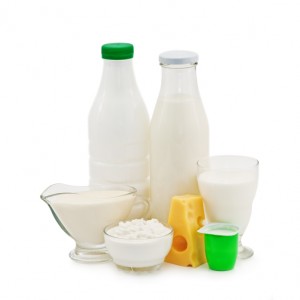Calcium
Calcium is a mineral that is found in foods, specifically dairy, and stored in bones and teeth in our body. It is essential for growth and development of children and adolescents as it maintains strong bones and teeth while also assisting in muscle contractions, nerve stimulations and regulating blood pressure.
Why do children need calcium?
Our bones can be seen as the “Bank of Calcium”. If calcium is not deposited, it will be withdrawn from the bones to be used in other areas of the body. If this keeps happening, over time bones can become weak and brittle which may lead to osteoporosis.
The amount of calcium absorbed into our bones is dependent on the amount of calcium that we eat and how much Vitamin D we get. Vitamin D is essential for calcium absorption and is gained primarily through sunlight. It can also be found in small amounts in foods such as fish and egg yolks. Many foods are now fortified with vitamin D. In Australia, these include margarine, some bread, breakfast cereals, milk and yoghurts and juices.
The Australian National Nutrition Survey revealed that 77% of girls and 64% of boys aged 12 to 15 years were not getting the daily requirements for calcium. This could lead to poor bone health and osteoporosis later in life. In Australia, osteoporosis already affects one in two females and one in three males over 60 years old.
How can children meet their calcium requirements?
In Australia, dairy foods are our primary source of calcium. Children aged up to 8 years old require 1½-2 serves of dairy or dairy alternatives and older children and adolescents require 2½- 3½ serves a day. From 12- 14 years for girls and 13 to 15 years for boys, there is a rapid increase in bone growth, requiring a higher amount of dairy/alternatives. A 250mL cup of milk, a 200g tub of yoghurt (most retail tubs are 150g-170g) and 2 slices of cheese (40g) are all examples of one serve of dairy. If you do not consume dairy and choose to consume an alternative, ensure it is fortified with at least 100mg calcium per 100mL (check the nutrient information panel).
The following products contain calcium also, but in smaller amounts compared to dairy products:
- Leafy Green Vegetables including Broccoli, bok choy, Chinese cabbage
- Fish including sardines and canned fish (with bones)
- Nuts and seeds including brazil nuts, almonds and tahini (sesame seed paste)
- Calcium-fortified foods including breakfast cereals, fruit juices and bread
- Soy and tofu products if they are fortified with calcium. Look for at least 100mg calcium/100mL on the nutrient information panel.
If you would like to ensure that your child is meeting their calcium requirements, visit the Eat For Health website for more information.







